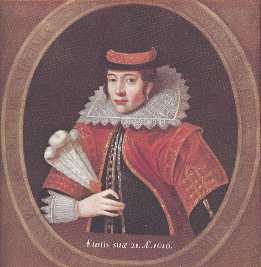The real message of Jamestown
The emperors have no clothesIn fact, it was the clan-based, longhouse-dwelling people who had knowledge of the land of the so-called New World. And after the colony's establishment, it was African slaves who tended the real "seed of freedom": tobacco. If the foreigners grew anything for themselves, it was the early model of American imperialism--exploiting shared resources to gain wealth for the state. This model flourishes today, the state's hypocrisy honed by consumer-citizens who generally feel no sense of responsibility for the original sins committed by their own ancestors. No doubt this would been a source of resentment for any Native people attending the White House gala, had any been invited.
Just as the legend of Pocahontas as Jamestown's princess heroine persists in the American psyche, so does the myth of the "founding" of an American society based on the rights and dignity of the individual. Pocahontas, the young daughter of Powhatan, is almost always depicted as a love-struck teen who willingly aided the hungry settlers. Rarely is she imagined as a child captive of an unhygienic man twice her age. She is one among the handful of internationally famous Native Americans because she helped the Europeans in their quest to tame the New World. The message is loud and clear: The only good Indian is one who can be honored as a symbol of colonization, of a better life through white "civilization."


No comments:
Post a Comment